Methyl (11Z)-11-icosenoate
Modify Date: 2025-08-25 19:52:17
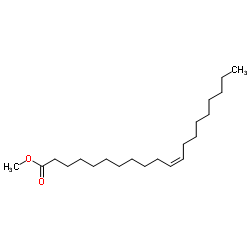
Methyl (11Z)-11-icosenoate structure
|
Common Name | Methyl (11Z)-11-icosenoate | ||
|---|---|---|---|---|
| CAS Number | 2390-09-2 | Molecular Weight | 324.541 | |
| Density | 0.9±0.1 g/cm3 | Boiling Point | 394.3±11.0 °C at 760 mmHg | |
| Molecular Formula | C21H40O2 | Melting Point | -34.0℃ | |
| MSDS | Chinese USA | Flash Point | 87.1±17.6 °C | |
Use of Methyl (11Z)-11-icosenoate(Z)-Methyl icos-11-enoate is a biochemical reagent that can be used as a biological material or organic compound for life science related research. |
| Name | cis-11-eicosenoic acid methyl ester |
|---|---|
| Synonym | More Synonyms |
| Description | (Z)-Methyl icos-11-enoate is a biochemical reagent that can be used as a biological material or organic compound for life science related research. |
|---|---|
| Related Catalog |
| Density | 0.9±0.1 g/cm3 |
|---|---|
| Boiling Point | 394.3±11.0 °C at 760 mmHg |
| Melting Point | -34.0℃ |
| Molecular Formula | C21H40O2 |
| Molecular Weight | 324.541 |
| Flash Point | 87.1±17.6 °C |
| Exact Mass | 324.302826 |
| PSA | 26.30000 |
| LogP | 9.22 |
| Appearance of Characters | Liquid |
| Vapour Pressure | 0.0±0.9 mmHg at 25°C |
| Index of Refraction | 1.456 |
| InChIKey | RBKMRGOHCLRTLZ-KHPPLWFESA-N |
| SMILES | CCCCCCCCC=CCCCCCCCCCC(=O)OC |
| Storage condition | −20°C |
|
Section 1. Chemical Product and Company Identification Methyl cis-11-Eicosenoate Common Name/ Trade Name Manufacturer Commercial Name(s) Synonym
Chemical Name Chemical Family Methyl cis-11-Eicosenoate Section 4. First Aid Measures Eye ContactCheck for and remove any contact lenses. In case of contact, immediately flush eyes with plenty of water for at least 15 minutes. Get medical attention if irritation occurs. Skin ContactWash with soap and water. Cover the irritated skin with an emollient. Get medical attention if irritation develops. Serious Skin ContactNot available. InhalationIf inhaled, remove to fresh air. If not breathing, give artificial respiration. If breathing is difficult, give oxygen. Get medical attention. Serious InhalationNot available. IngestionDo NOT induce vomiting unless directed to do so by medical personnel. Never give anything by mouth to an unconscious person. If large quantities of this material are swallowed, call a physician immediately. Loosen tight clothing such as a collar, tie, belt or waistband. Serious IngestionNot available. Section 5. Fire and Explosion Data Flammability of the Product May be combustible at high temperature. Auto-Ignition Temperature Not available. Flash PointsCLOSED CUP: 113°C (235.4°F). Flammable LimitsNot available. Products of CombustionThese products are carbon oxides (CO, CO2). Fire Hazards in Presence of Slightly flammable to flammable in presence of open flames and sparks, of heat. Various Substances Explosion Hazards in Presence Risks of explosion of the product in presence of mechanical impact: Not available. Risks of explosion of the product in presence of static discharge: Not available. of Various Substances SMALL FIRE: Use DRY chemical powder. Fire Fighting Media and InstructionsLARGE FIRE: Use water spray, fog or foam. Do not use water jet. Not available. Special Remarks on Fire Hazards Special Remarks on Explosion Not available. Hazards Section 6. Accidental Release Measures Small SpillAbsorb with an inert material and put the spilled material in an appropriate waste disposal. Large SpillAbsorb with an inert material and put the spilled material in an appropriate waste disposal. Finish cleaning by spreading water on the contaminated surface and allow to evacuate through the sanitary system. Methyl cis-11-Eicosenoate Section 7. Handling and Storage PrecautionsKeep away from heat. Keep away from sources of ignition. Ground all equipment containing material. Do not breathe gas/fumes/ vapor/spray. Keep away from incompatibles such as oxidizing agents. StorageKeep container tightly closed. Keep container in a cool, well-ventilated area. Do not store above -20°C (-4°F). Deep Freeze. Section 8. Exposure Controls/Personal Protection Engineering ControlsProvide exhaust ventilation or other engineering controls to keep the airborne concentrations of vapors below their respective threshold limit value. Ensure that eyewash stations and safety showers are proximal to the work-station location. Personal Protection Safety glasses. Lab coat. Personal Protection in Case of Splash goggles. Full suit. Boots. Gloves. Suggested protective clothing might not be sufficient; consult a a Large Spillspecialist BEFORE handling this product. Exposure LimitsNot available. Section 9. Physical and Chemical Properties Physical state and appearance Liquid.Not available. Odor TasteNot available. Molecular Weight324.55 g/mole ColorNot available. pH (1% soln/water)Not available. Boiling PointNot available. Melting Point-15°C (5°F) Critical TemperatureNot available. Not available. Specific Gravity Vapor PressureNot available. Not available. Vapor Density VolatilityNot available. Odor ThresholdNot available. Not available. Water/Oil Dist. Coeff. Ionicity (in Water)Not available. Not available. Dispersion Properties SolubilityNot available. Section 10. Stability and Reactivity Data StabilityThe product is stable. Not available. Instability Temperature Conditions of InstabilityExcess heat, incompatible materials Incompatibility with variousReactive with oxidizing agents. substances CorrosivityNot available. Methyl cis-11-Eicosenoate Not available. Special Remarks on Reactivity Not available. Special Remarks on Corrosivity PolymerizationWill not occur. Section 11. Toxicological Information Routes of EntryAbsorbed through skin. Eye contact. Toxicity to AnimalsLD50: Not available. LC50: Not available. Chronic Effects on Humans Not available. Other Toxic Effects on Slightly hazardous in case of skin contact (irritant), of ingestion, of inhalation. Humans Special Remarks onNot available. Toxicity to Animals Special Remarks onNot available. Chronic Effects on Humans Special Remarks on otherAcute Potential Health Effects: Toxic Effects on HumansSkin: May cause skin irritation. Eyes: May cause eye irritation. Inhalation: Inhalation of mist or vapor may cause respiratory tract irritation. Ingestion: May cause gastrointestial tract irritation. The toxicological properties of this substance have not been fully investigated. Section 12. Ecological Information EcotoxicityNot available. Not available. BOD5 and COD Possibly hazardous short term degradation products are not likely. However, long term degradation products may Products of Biodegradation arise. Toxicity of the ProductsThe product itself and its products of degradation are not toxic. of Biodegradation Special Remarks on theNot available. Products of Biodegradation Section 13. Disposal Considerations Waste DisposalWaste must be disposed of in accordance with federal, state and local environmental control regulations. Section 14. Transport Information DOT ClassificationNot a DOT controlled material (United States). IdentificationNot applicable. Not applicable. Special Provisions for Transport Methyl cis-11-Eicosenoate DOT (Pictograms) Section 15. Other Regulatory Information and Pictograms No products were found. Federal and State Regulations CaliforniaCalifornia prop. 65: This product contains the following ingredients for which the State of California has found to cause cancer which would require a warning under the statute: No products were found. Proposition 65 Warnings California prop. 65: This product contains the following ingredients for which the State of California has found to cause birth defects which would require a warning under the statute: No products were found. Other RegulationsEINECS: This product is on the European Inventory of Existing Commercial Chemical Substances. WHMIS (Canada) Not controlled under WHMIS (Canada). Other Classifications DSCL (EEC)This product is not classified according Not applicable. to the EU regulations. Health Hazard HMIS (U.S.A.)1 National Fire Protection 1 Flammability 1 Association (U.S.A.) Fire Hazard 1 0 Reactivity Health Reactivity 0 Specific hazard Personal Protection a WHMIS (Canada) (Pictograms) DSCL (Europe) (Pictograms) TDG (Canada) (Pictograms) ADR (Europe) (Pictograms) Protective Equipment Not applicable. Lab coat. Not applicable. Safety glasses. SECTION 16 - ADDITIONAL INFORMATION N/A |
| Personal Protective Equipment | Eyeshields;Gloves |
|---|---|
| Hazard Codes | Xi |
| RIDADR | NONH for all modes of transport |
| WGK Germany | 1 |
| HS Code | 2916190090 |
| Precursor 9 | |
|---|---|
| DownStream 3 | |
| HS Code | 2916190090 |
|---|---|
| Summary | 2916190090 unsaturated acyclic monocarboxylic acids, their anhydrides, halides, peroxides, peroxyacids and their derivatives。supervision conditions:AB(certificate of inspection for goods inward,certificate of inspection for goods outward)。VAT:17.0%。tax rebate rate:9.0%。MFN tariff:6.5%。general tariff:30.0% |
|
Optimization of supercritical fluid consecutive extractions of fatty acids and polyphenols from Vitis vinifera grape wastes.
J. Food Sci. 80(1) , E101-7, (2015) In this study, supercritical fluid extraction has been successfully applied to a sequential fractionation of fatty acids and polyphenols from wine wastes (2 different vitis vinifera grapes). To this a... |
| HIS-TRP-SER-TYR-GLY-LEU-ARG-PRO-GLY-NH2 |
| 11-Eicosenoic acid, methyl ester, (Z)- |
| gondoic acid methyl ester |
| DES-PGLU1-LH-RH |
| EINECS 219-226-8 |
| Methyl (11Z)-icos-11-enoate |
| MFCD00010458 |
| Methyl cis-11-eicosenoate C20:1 |
| H-His-Trp-Ser-Tyr-Gly-Leu--Arg-Pro-Gly-NH2 |
| methyl cis-eicosenoate |
| 11-Eicosenoic acid, methyl ester, (11Z)- |
| des-pglu1-luteinizing hormone*releasing hormone |
| gonadotropin releasing-hormone |
| Methyl (11Z)-11-icosenoate |
| Methyl cis-11-eicosenoate |
 CAS#:67-56-1
CAS#:67-56-1 CAS#:143-28-2
CAS#:143-28-2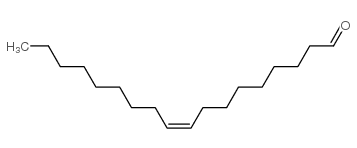 CAS#:2423-10-1
CAS#:2423-10-1 CAS#:116408-27-6
CAS#:116408-27-6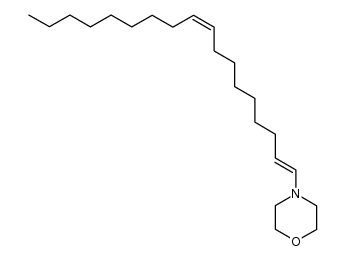 CAS#:166106-20-3
CAS#:166106-20-3 CAS#:68760-56-5
CAS#:68760-56-5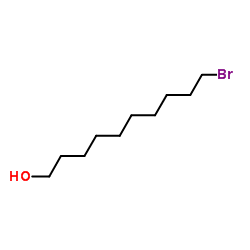 CAS#:53463-68-6
CAS#:53463-68-6![2-[(10-bromodecyl)oxy]tetrahydro-2H-pyran Structure](https://image.chemsrc.com/caspic/038/51795-88-1.png) CAS#:51795-88-1
CAS#:51795-88-1 CAS#:1359947-89-9
CAS#:1359947-89-9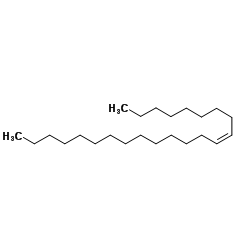 CAS#:27519-02-4
CAS#:27519-02-4 CAS#:62442-62-0
CAS#:62442-62-0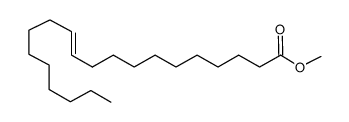 CAS#:69119-90-0
CAS#:69119-90-0
